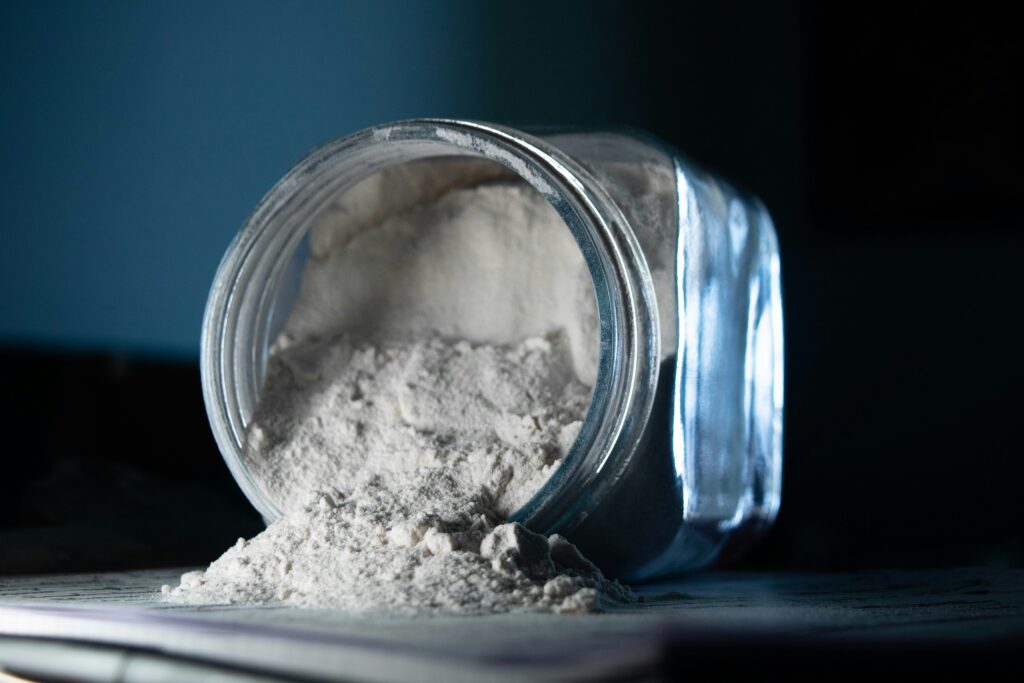
Table of Contents
ToggleBest Supplements for Faster Muscle Recovery
If you are doing an intense workout, recovery is as important as the exercise. If you want your muscles to build efficiently and also remain strong or injury free, you have to use the right supplements. In this article we will learn about the best supplements for faster muscle recovery, how they work, and why they should be a part of your fitness routine.
Why Muscle Recovery Matters
When we start exercising, our muscles experience small tears, which lead to soreness and fatigue. Proper recovery helps repair these muscles, making them stronger and more resilient. Good diet, hydration and sleep play an important role in this process, but supplements can help speed it up.
We suggest you a guide plan will show you 15 science-backed strategies that will help optimize muscle recovery and create a helpful fitness routine.
We’ve divided our tips into five categories:
1. Foods
2. Drinks
3. Supplements
4. lifestyle habits
5. Things to avoid
These tips serve as general guidance to enhance muscle recovery.
Foods that Aid Muscle Recovery
1. Prioritize Protein Post-Workout
When you exercise, your muscle fibres develop small tears which cause pain. It is important to consume protein after a workout as it provides essential building blocks (Amino acids) for repairing muscles. Research suggests that taking 1.6 grams of protein per kg body weight daily maximizes the rate of muscle growth.
2. Consider Pre-Workout Protein
People have formed a deep concept that consuming proteins before a workout helps them meet their daily intake targets.
But studies show that whether you take protein pre-workout or post-workout, both are beneficial, but the most important thing is your total daily protein consumption, timing does not matter that much.
3. Balanced Diet
A well-rounded and healthy diet prevents nutrient deficiencies that could hinder muscle recovery. Follow these general principles:
– Minimize ultra-processed foods
– Eat plenty of fruits and vegetables
– Include high-quality protein sources like beans, tofu, lean poultry, and eggs
– Incorporate healthy fats such as olive oil, avocados, nuts, and seeds
For more insights on this topic, feel free to explore related article. You can check it out herehttps://careblot.com/top-superfoods-for-building-muscle-boost-strength/
4. Stay Hydrated
Dehydration can slow our body’s muscle repair and recovery, and the problem becomes even more serious when you’re exercising in hot or humid conditions. A common recommendation is to consume 1.5 liters of fluid for every 1 kg of body weight lost—which is equivalent to about 3 cups per pound lost.

5. Try Cherry Juice
Athletes often drink cherry juice to reduce inflammation, muscle damage, and soreness. A 2022 study found that cherry juice may help with muscle recovery when taken before a workout. However, more research is needed to determine optimal dosage and timing.
Beneficial Supplements for Recovery
1. Protein Powders
Why It Helps: Protein is very important for repairing our muscles and for good growth. After exercise or workout, our body needs amino acids which are the building blocks of proteins, due to this the muscle fibers get rebuilt.
Best Options:
- Whey Protein – Fast-digesting and rich in essential amino acids.
- Casein Protein – Slow-digesting, ideal for overnight recovery.
- Plant-Based Protein – A great option for vegans and those with lactose intolerance.

2. Branched-Chain Amino Acids (BCAAs)
Why It Helps:
BCAAs (Leucine, Isoleucine, and Valine) reduce muscle soreness, prevent muscle breakdown, and improve endurance.
Best Options:
- Powder or capsule form
- Ratio of 2:1:1 (Leucine: Isoleucine: Valine)
How to Use: Consume before, during, or after your workout to support recovery.
3. Creatine Monohydrate
Why It Helps:
Creatine boosts ATP production, allowing muscles to recover faster and reducing fatigue.
Best Options:
- Creatine monohydrate (most researched and effective form)
How to Use: Take 3-5 grams daily, preferably after workouts with a carbohydrate source for better absorption.
4. Magnesium
Why It Helps:
Magnesium helps relax muscles, reduce cramps, improve sleep quality, and lower stress—all essential for recovery.
Best Options:
✔ Magnesium Glycinate (best for absorption and muscle relaxation)
How to Use:
👉 Take 200-400 mg before bed to relax muscles and improve sleep quality
5. Glutamine
Why It Helps:
L-Glutamine helps repair muscles, reduce soreness, and supports immune function, especially after intense training.
Best Options:
✔ L-Glutamine powder or capsules
How to Use:
👉 Take 5 grams post-workout to speed up muscle recovery.
6. Vitamin D
Why It Helps:
Vitamin D is essential for muscle strength, recovery, and reducing injury risk. Low levels can slow recovery and lead to weakness.
Best Options:
✔ Vitamin D3 supplements (most effective form)
How to Use:
👉 Take 1000-5000 IU daily, especially if you have limited sun exposure.
7. Collagen Peptides
Why It Helps:
Collagen supports joint health, reduces stiffness, and aids in muscle repair. It’s especially beneficial for tendons and ligaments.
Best Options:
✔ Hydrolyzed Collagen Powder (easily absorbed)
How to Use:
👉 Take 10-15 grams daily in a smoothie or coffee for better joint and muscle recovery.
Lifestyle Habits That Support Recovery
Lifestyle habits significantly improves muscle recovery after exercise.
1. Sleep
Muscles repair themselves when the body is at rest. People who do intense workouts need more sleep than the average person. Research suggests that lack of sleep can affect muscle recovery because it affects inflammation levels and hormone production.
2. Get a Massage
Many athletes include massage in their daily recovery routine after exercise to reduce soreness. A 2020 study found that massage slightly improves flexibility and reduces delayed onset muscle soreness (DOMS).
3. Wear Compression Garments
Compression clothing has become quite popular among athletes these days, especially for recovery. Through a 2019 study, athletes who wear compression garments for 24 hours after a workout had a faster muscle recovery time.
Consider Cryotherapy
Cryotherapy is a technique in which the body is exposed to very cold temperatures for a few seconds or minutes. This method can help reduce pain, inflammation, and fatigue after an intense workout. Athletes use it to speed up the muscle recovery process.
Habits That Can Hinder Recovery
While some practices boost muscle recovery, there are some that slow down this process or can even harm the body. That’s why it’s very important to choose the right recovery method.
Avoid Excessive Alcohol
Alcohol negatively affects health in various ways—it raises blood pressure, disrupts sleep, and provides no nutritional benefits. Regular alcohol consumption may also slow muscle recovery and increase the risk of muscle loss.
Quit Tobacco
As you know that smoking damages overall health, similarly smoking has a harmful effect on the musculoskeletal system. Although its direct research on muscle recovery is limited, studies show that smoking increases the risk of muscular injury and also increases the chances of developing joint diseases.
Understanding Muscle Recovery Time
The time of rate of muscle recovery depends on multiple factors, including workout intensity and individual fitness levels. Here’s a general guideline:
– Light workouts: Recovery in about 24 hours
– Moderate workouts: Recovery in 2–3 days
– Intense workouts: May take longer
Understanding Muscle Recovery Time
– Sleep quality
– Nutritional intake
– Stress levels
– Workout type (e.g., full-body vs. isolated muscle group training)
Preventing Injury During Recovery
To minimize injury risk, adopt a progressive approach to training. Gradually increasing intensity and volume over time is key to avoiding overtraining.
A well-structured training program balances effort with recovery. A common approach for weightlifting includes:
– Monday: Back and biceps
– Wednesday: Chest and arms
– Friday: Legs and core
This schedule allows each muscle group adequate recovery time between sessions.
FAQs About Muscle Recovery
What helps muscle recovery?
➔ Proper Sleep
➔ High-Protein Diet
➔ Hydration
➔ Stretching and Cool-Down
➔ Active Recovery
➔ Foam Rolling or Massage
➔ Supplements (if needed)
➔ Rest Days
➔ Anti-Inflammatory Foods
What is the fastest way to heal a muscle?
➔ Prioritize Rest: Stop heavy workouts immediately and give the muscle complete rest.
➔ Cold Therapy First: Apply ice packs in the first 24–48 hours to reduce swelling and pain.
➔ Gentle Movement: After the initial rest, do slow, pain-free movements to maintain flexibility.
➔ Fuel with Nutrition: Eat foods rich in protein, vitamin C, and magnesium to boost natural healing.
➔ Stay Hydrated: Water speeds up recovery by flushing toxins and keeping tissues healthy.
What is the fastest way to heal a muscle?
Mild soreness is generally safe, but sharp pain could indicate injury. It’s important to differentiate between normal soreness and actual pain.
Conclusion
Incorporating the best supplements for faster muscle recovery can significantly enhance your fitness progress. Whether it’s whey protein for muscle repair, BCAAs to prevent breakdown, or creatine for energy replenishment, these supplements play a crucial role in speeding up recovery and reducing soreness. According to an article on healthline, 14 tips on muscle recoery. you can read this article here.